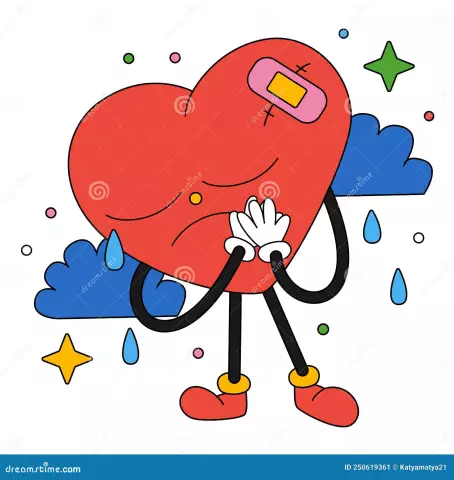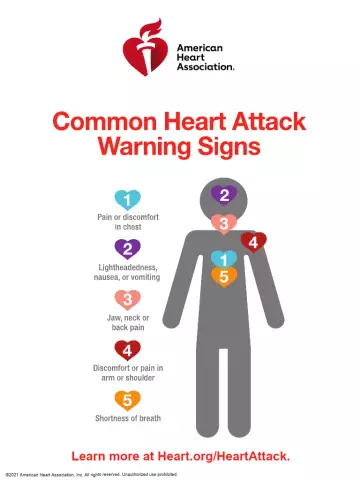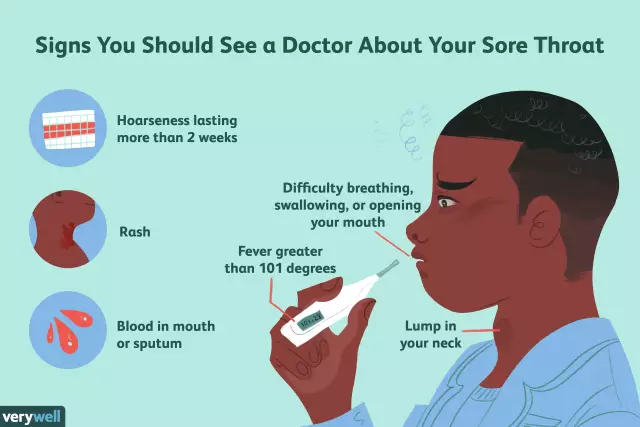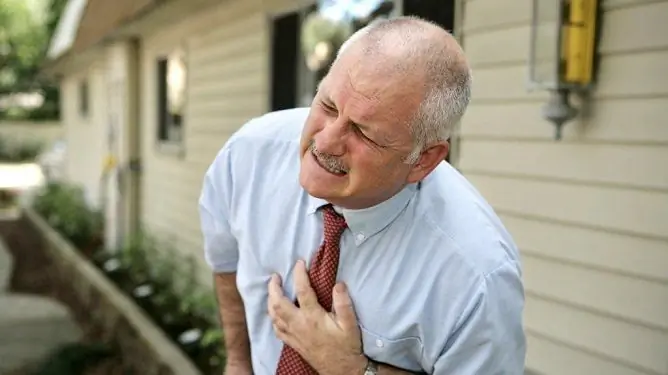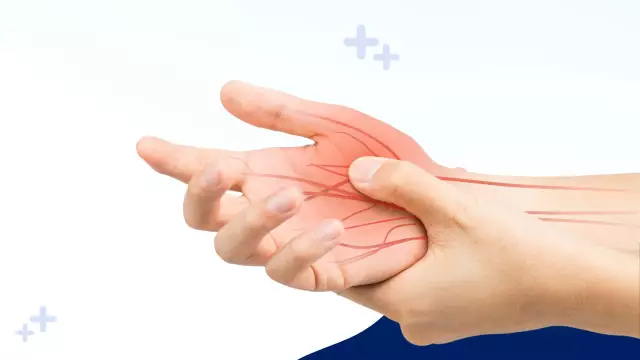- Author Rachel Wainwright wainwright@abchealthonline.com.
- Public 2023-12-15 07:39.
- Last modified 2025-11-02 20:14.
Heart hurts: what to do

Heart pain is one of the most common symptoms of referring to a therapist and cardiologist. This symptom may not have specific causes of its occurrence, be episodic or persistent, be the main symptom or be supplemented by other signs that help to establish the cause of pain, diagnosis and determine treatment tactics.
Heart pain: typology and main causes of pain
Patients call any pain or any discomfort in the heart area pain in the heart. However, not all sternum pain can be caused by pathological processes in the heart muscle. A classification of the causes of heart pain should be given. Initially, the causes of discomfort in the chest in the region of the heart can be cardiac and non-cardiac.
Noncardiac causes of heart pain are diseases of various organs located in the chest, with radiating pain to the region of the heart. These factors include:
- Diseases of the stomach (ulcers, gastritis), diseases of the esophagus, pancreas, disruption of the functioning of the gastrointestinal tract (for example, a swollen intestine that exerts a squeezing effect, which provokes a malfunction of the heart);
- Damage to the thoracic spine, ribs, intercostal nerves, costal cartilage pathology;
- Infectious diseases (like Herpes Zoster - shingles);
- Neuroses;
- Mental disorders, stress, depression;
- Diseases of the lungs and pleura.
Cardiac causes of pain are associated with direct damage to the heart muscle. Such causes of pain in the heart include:
- Violation of blood flow in the heart muscle, oxygen flow. (Such pains in the heart are called angular, ischemic or angina pectoris.);
- Metabolic disorders in the heart muscle;
- Inflammatory, degenerative processes in the tissues of the heart;
- Increased load on the heart muscle associated with high blood pressure, heart disease;
- Acute coronary syndrome preceding vascular atherosclerosis;
- Cardiopsychoneurosis.
Heart pain caused by causes other than angina pectoris (a dysfunction of the heart due to a lack of oxygen and blood flow to the heart muscle) is called cardialgia.
The duration of pain, its nature and location also indicate the cause of its occurrence.
Aching pains in the heart: causes and diseases
Aching pain in the heart is one of the most common symptoms that may indicate the development of various diseases. Aching heart pains can occur at any age. It is important to note what factors accompany the appearance of aching pain in the heart: eating, resting, certain movements. A aching heartache that occurs at rest indicates the development of a depressive syndrome, autonomic dysfunction. As a rule, with such diseases, pain is localized in the region of the apex of the heart, characterized by a long course. Such heart pain is not life-threatening for the patient, but should not be ignored.
Another cause of aching pain in the heart is myocarditis. Often, pain can be accompanied by sensations of irregularities in the heart rhythm, weakness, and increased fatigue. As a rule, aching heart pain, provoked by myocarditis, develops after previous diseases (angina).
A aching heart pain that is not eliminated by nitroglycerin may indicate mitral valve prolapse.
Aching pain in the heart can be caused by a change in hormonal levels. So, aching pains can appear in adolescence during the period of hormonal changes in the human body. Also, aching pains can accompany the climacteric period in a woman's life, when the level of sex hormones drops sharply.
Stitching pains in the heart: causes and diseases

Stitching pains in the heart are a common symptom that many patients complain of. Myocarditis, pericarditis, cardialgia can cause stabbing pains in the heart area. Pain of this nature increases with deep breaths, coughing, trying to change the position of the body. If the stabbing pain does not lend itself to elimination with nitroglycerin, then perhaps myocardial infarction occurs - a form of necrosis of the heart muscle. If stabbing pains are accompanied by headaches, pressing pains in the sternum, then they can be a symptom of arterial hypertension.
Angina pectoris is one of the most common causes of stabbing heart pain. Pain with angina pectoris, as a rule, occurs quickly and lasts no more than 5-7 minutes. Stitching pain is easily relieved by taking pills or a nitroglycerin spray under the tongue. A characteristic feature of pain syndrome in angina pectoris is the irradiation of pain under the left scapula, into the left shoulder, arm, as well as into the left side of the neck and jaw.
Stitching pain in the heart is also a symptom of pulmonary hypertension, a pathological condition characterized by an increase in blood pressure in the vascular bed of the pulmonary artery.
Pain in the heart of a stabbing nature can also be caused by dysfunction of the endocrine system (thyrotoxicosis), while accompanied by tachycardia and a state of general excitement, gastrointestinal diseases (acute cholecystitis), respiratory disorders (pneumothorax, diaphragmatic hernia, dry pleurisy, acute pneumonia), on the part of the musculoskeletal system (thoracalgia, acute intercostal myositis, Titze's syndrome). In rare cases, panic attacks and hysteria become the cause of stabbing pain in the region of the heart. In this case, the pain syndrome is accompanied by an acute shortness of breath, a feeling of heart rhythm disturbance. For this type of pain, traditional medications will be ineffective, while heart pain is relieved by sedatives.
Heart aches: what to do?
The work of the heart is regulated by the endocrine and nervous systems of the body, which determine the frequency and strength of heart contractions. The normal functioning of the heart also depends on the balance of calcium and potassium ions in the blood. The work of the heart is influenced by the lifestyle of a person, nutrition, the alternation of physical activity and rest, stress, and other diseases of the body.
One-time or momentary heart pain can be caused by various factors and rarely poses a threat to human health and life. However, when it comes to recurring heart pain, a specialist will tell you what to do in this case.
Given the variety of causes that cause heart pain, the patient needs to undergo a comprehensive examination. So, with repeated attacks of pain of any nature and duration, the patient should consult a cardiologist, pulmonologist, traumatologist, oncologist, therapist, resuscitator. When your heart hurts, the emergency doctor will also tell you what to do. Any pain in the heart should not be left without attention and proper examination.
Found a mistake in the text? Select it and press Ctrl + Enter.

